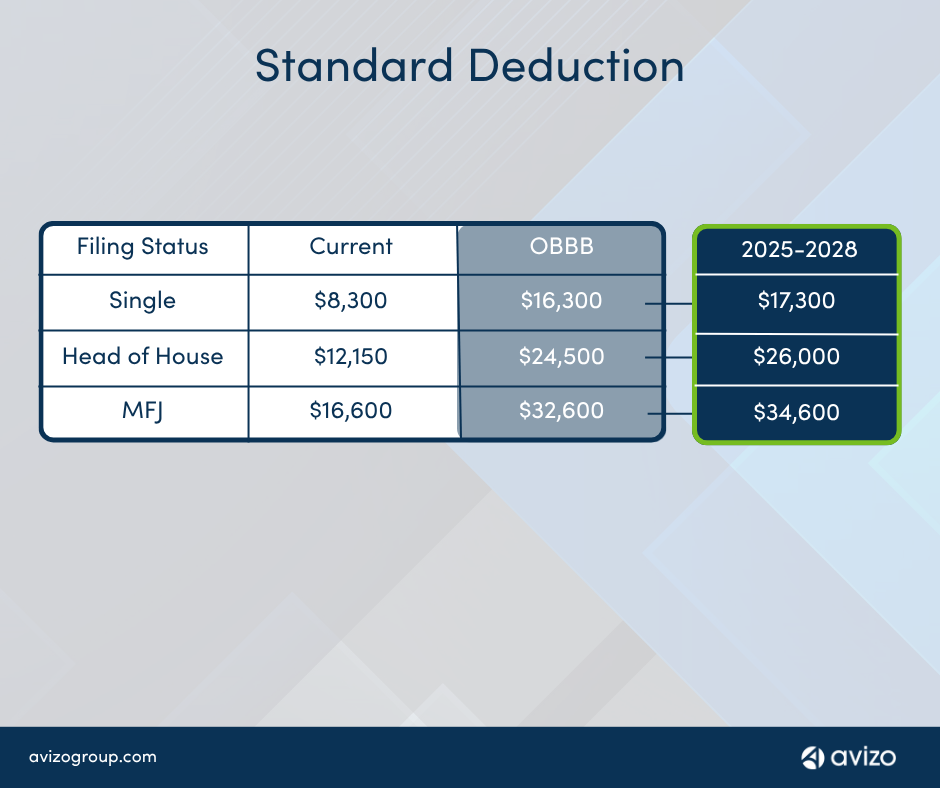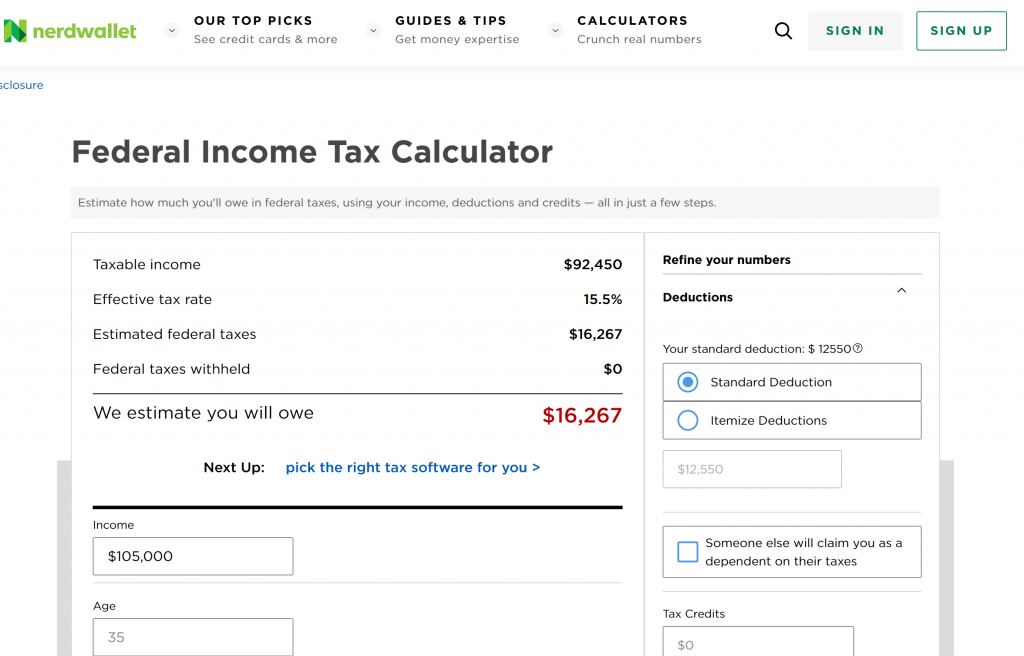A easy-to-follow walkthrough on calculating the FEIE Standard Deduction
Wiki Article
Everything about the Foreign Earned Income Exclusion: Optimizing Your Criterion Deduction Benefits
The Foreign Earned Earnings Exclusion (FEIE) offers an important opportunity for united state citizens living abroad to reduce their tax responsibilities. Comprehending the eligibility requirements is important for those looking for to gain from this exclusion. Asserting the basic deduction can enhance overall tax obligation benefits. Managing this process includes careful focus to detail and an awareness of common challenges. Discovering these aspects can give quality and take full advantage of potential tax benefits.Understanding the Foreign Earned Revenue Exemption (FEIE)
The Foreign Earned Income Exemption (FEIE) enables U.S. residents and resident aliens functioning abroad to omit a portion of their international revenues from government income tax obligation. This arrangement acts as a monetary alleviation system, allowing migrants to maintain a bigger share of their income gained in international nations. By decreasing gross income, the FEIE helps alleviate the worry of double taxation, as individuals might also undergo taxes in their host nations. The exemption uses only to gained income, that includes earnings, salaries, and expert charges, while passive revenue and investment gains do not certify. To gain from the FEIE, individuals have to file details forms with the IRS, detailing their international earnings and residency - FEIE Standard Deduction. Comprehending the subtleties of the FEIE can significantly impact monetary preparation for U.S. people living overseas, making it important for expatriates to stay educated about this advantageous tax obligation provisionEligibility Standards for the FEIE
To get the Foreign Earned Earnings Exemption (FEIE), people should fulfill particular qualification standards. This consists of satisfying residency requirements, passing the physical existence examination, and developing a tax home in a foreign nation. Each of these variables plays an essential function in establishing whether one can gain from the exclusion.Residency Requirements
Meeting the residency requirements is crucial for individuals seeking to receive the Foreign Earned Earnings Exemption (FEIE) To be qualified, taxpayers must develop a bona fide residence in a foreign country or nations for a continuous duration that commonly extends a whole tax year. This need stresses the requirement of a much deeper connection to the international area, moving past simple physical presence. People should demonstrate their intent to reside in the international nation and have established their living situation there. Elements such as the length of keep, kind of housing, and neighborhood area participation are thought about in establishing residency. Fulfilling these requirements is crucial, as failing to do so might invalidate one from benefiting from the FEIE.Physical Existence Examination
Establishing qualification for the Foreign Earned Revenue Exemption (FEIE) can also be achieved through the Physical Visibility Test, which requires individuals to be literally present in a foreign nation for at the very least 330 full days throughout a successive 12-month period. This examination is helpful for those who may not fulfill the residency demand but still reside abroad. The 330 days have to be full days, implying that any day invested in the United States does not count toward this overall. It is crucial for individuals to maintain exact records of their traveling days and areas to support their cases. Successfully passing this examination can considerably lower gross income and enhance economic end results for migrants.Tax Obligation Home Place
Tax home location plays an important duty in establishing eligibility for the Foreign Earned Income Exclusion (FEIE) To qualify, a specific have to develop a tax obligation home in an international country, which means their key workplace is outside the United States. This stands out from a plain house; the individual need to conduct their job in the foreign nation while keeping a considerable connection to it. The internal revenue service needs that the taxpayer can demonstrate the intent to remain in the foreign location for a prolonged duration. Additionally, keeping a home in the U.S. can make complex qualification, as it might recommend that the individual's real tax obligation home is still in the USA. Comprehending this requirement is critical for taking full advantage of FEIE advantages.Just how to Assert the FEIE on Your Tax Obligation Return
Declaring the Foreign Earned Revenue Exemption (FEIE) on an income tax return needs careful attention to detail and adherence to particular IRS standards. Taxpayers must first confirm eligibility by meeting either the bona fide residence test or the physical visibility test. Once eligibility is confirmed, they should finish internal revenue service Kind 2555, which information international gained income and appropriate info regarding their tax home.It is necessary to report all foreign earnings precisely and preserve proper documentation to support claims. Taxpayers should likewise recognize the maximum exclusion limit, which is subject to annual adjustments by the internal revenue service. Filing Form 2555 along with the yearly income tax return permits taxpayers to omit a part of their international incomes from U.S. taxation. Finally, it is recommended to get in touch with a tax obligation expert or IRS sources for upgraded information and support on the FEIE process, guaranteeing conformity and maximization of prospective benefits.
The Requirement Deduction: What You Required to Know
Just how does the conventional reduction influence taxpayers' total financial situation? The conventional reduction acts as a considerable tax obligation advantage, reducing taxable earnings and possibly lowering tax liabilities. For the tax year 2023, the common reduction is established at $13,850 for solitary filers and $27,700 for couples submitting collectively. This reduction streamlines the declaring process, as taxpayers can opt for it instead of making a list of deductions, which needs thorough record-keeping.
Taxpayers earning international revenue may still claim the typical reduction, gaining from lowered gross income even while utilizing the Foreign Earned Revenue Exclusion (FEIE) It is necessary to keep in mind that the standard deduction can not be combined with itemized reductions for the exact same tax year - FEIE Standard Deduction. Understanding the conventional reduction enables taxpayers to make informed choices concerning their tax approaches, making best use of offered benefits while making sure compliance with Internal revenue service policies.
Methods for Optimizing Your Deductions
Maximizing deductions under the Foreign Earned Revenue click here for more info Exemption needs a clear understanding of earned earnings restrictions and the benefits of asserting real estate exclusions. In addition, utilizing Type 2555 effectively can boost the capacity for significant tax financial savings. These strategies can considerably impact the overall tax liability for expatriates.Understand Made Income Limitations
While lots of migrants seek to reduce their tax obligation worry, understanding the made income limitations is important for successfully leveraging the Foreign Earned Revenue Exemption. The Irs (IRS) sets particular thresholds that determine the maximum amount of foreign made revenue eligible for exemption. For the tax obligation year 2023, this restriction is $120,000 per certified person. Surpassing this threshold may lead to tax on the earnings over the restriction, diminishing the benefits of the exemption. To make best use of reductions, migrants need to maintain accurate records of their foreign earned income and evaluate their qualification for the exemption each year. Strategic intending around these restrictions can substantially improve tax obligation savings, permitting migrants to enhance their economic scenario while living abroad.Asserting Real Estate Exclusion Conveniences
Several migrants ignore the prospective advantages of claiming the Real estate Exemption, which can substantially minimize their gross income. This exclusion enables people living abroad to subtract particular housing expenses from their gross earnings, making it less complicated to satisfy monetary obligations without sustaining substantial tax liabilities. To optimize this benefit, expatriates should confirm they qualify based on their home and employment conditions. Additionally, recognizing qualified costs-- such as rent, utilities, and maintenance-- can boost the overall reduction. Maintaining comprehensive documents of these expenses is important for confirming claims. By strategically steering through the Real estate Exclusion, expatriates can notably lower their tax worry and maintain even more of their profits while living overseas, ultimately enhancing their economic well-being.Use Form 2555 Properly
Utilizing Type 2555 effectively can substantially enhance the economic advantages readily available to migrants, particularly after capitalizing on the Housing Exemption. This kind enables people to claim the Foreign Earned Revenue Exclusion, which can substantially reduce gross income. To make best use of deductions, migrants must verify they satisfy the credentials, consisting of the physical presence test or the bona fide home examination. It is vital to precisely report all foreign gained earnings and to keep thorough documents of eligibility. In addition, utilizing the Real estate Exemption in tandem with Kind 2555 can additionally reduce total tax obligation liability. By comprehending the intricacies of these types, migrants can enhance their tax obligation scenario and maintain more of their hard-earned revenue while living abroad.Common Risks to Avoid When Declaring Your Tax Obligations Abroad

Often Asked Inquiries
Can I Claim Both FEIE and the Foreign Tax Credit?
Yes, a person can claim both the Foreign Earned Income Exclusion (FEIE) and the Foreign Tax Obligation Credit History (FTC) They must guarantee that the very same revenue is not utilized for both benefits to stay clear of dual advantages.What Occurs if I Go Beyond the FEIE Revenue Restriction?
Exceeding the Foreign Earned Earnings Exemption (FEIE) income restriction leads to the ineligibility for the exclusion on anonymous the excess quantity. This might result in gross income in the USA, needing suitable tax obligation filings.Are There Any Type Of State Tax Implications for FEIE?
State tax obligation ramifications for the Foreign Earned Revenue Exclusion (FEIE) differ by state. Some states might tire international income while others adhere to government exclusions, making it vital for people to speak with state-specific tax regulations for quality.
How Does FEIE Impact My Social Protection Benefits?
The Foreign Earned Revenue Exemption (FEIE) does not straight impact Social Safety advantages. Nonetheless, revenue omitted under FEIE might impact the calculation of average indexed monthly earnings, potentially influencing future benefits.Can I Withdraw My FEIE Political Election After Asserting It?
Yes, a person can revoke their Foreign Earned Income Exemption (FEIE) political election after claiming it. This retraction has to be carried out in writing and sent to the internal revenue service, sticking to certain guidelines and due dates.Recognizing the Foreign Earned Earnings Exclusion (FEIE)
The Foreign Earned Income Exclusion (Exemption) allows U.S. enables and people aliens working abroad to exclude an omit of their foreign earnings international incomes income taxRevenue Taxpayers earning international earnings may still assert the typical reduction, profiting from decreased taxable earnings even while making use of the Foreign Earned Revenue Exemption (FEIE) Making best use of reductions under the Foreign Earned Income Exemption requires a clear understanding of earned revenue limitations and the advantages of declaring real estate exclusions. While lots of migrants seek to minimize their tax worry, comprehending the earned earnings limits is necessary for efficiently leveraging the Foreign Earned Revenue Exclusion. Exceeding the Foreign Earned Revenue Exclusion (FEIE) earnings restriction results in the ineligibility for the exclusion on the excess quantity.
Report this wiki page